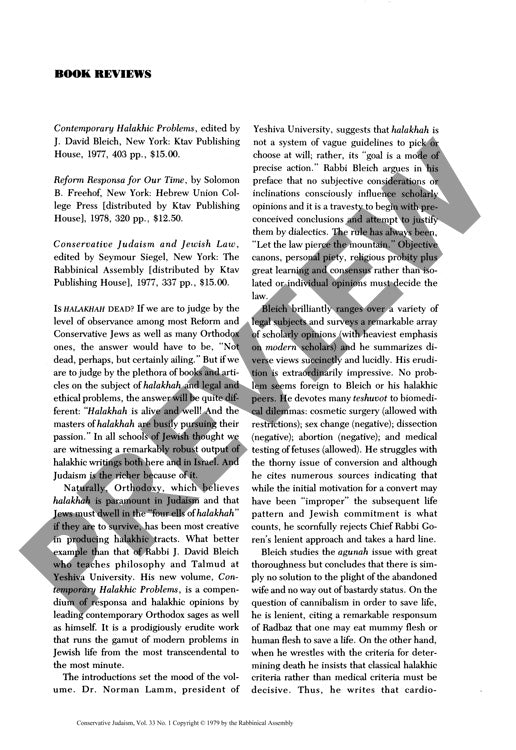Book Reviews
Couldn't load pickup availability
How Jewish legal scholars interpret and apply religious law reveals deep ideological fault lines between Orthodox, Reform, and Conservative Judaism. Through comparative analysis of responsa literature from three influential works - J. David Bleich's "Contemporary Halakhic Problems," Solomon B. Freehof's "Reform Responsa for Our Time," and Seymour Siegel's "Conservative Judaism and Jewish Law" - fundamental disagreements emerge about the nature and application of halakhah (Jewish law). Orthodox scholarship, represented by Bleich, maintains that halakhah embodies divine will through precise interpretation and practice. In contrast, Reform approaches, exemplified by Freehof, treat halakhic texts as guidance rather than governance, often reaching more permissive conclusions. The Conservative movement, as articulated by Siegel, seeks middle ground by balancing traditional authority with ethical considerations and contemporary needs. While all three movements employ serious halakhic methodology, their divergent assumptions about revelation, authority, and human judgment in legal interpretation create distinct approaches. These differences highlight an ongoing tension between preserving traditional authority and addressing modern circumstances, demonstrating halakhah's continued vitality and contested nature across denominational boundaries in contemporary Jewish life.

More Information
-
Physical Description
-
Publication Information
Published 1979
ISBN
-
Publication Credits

